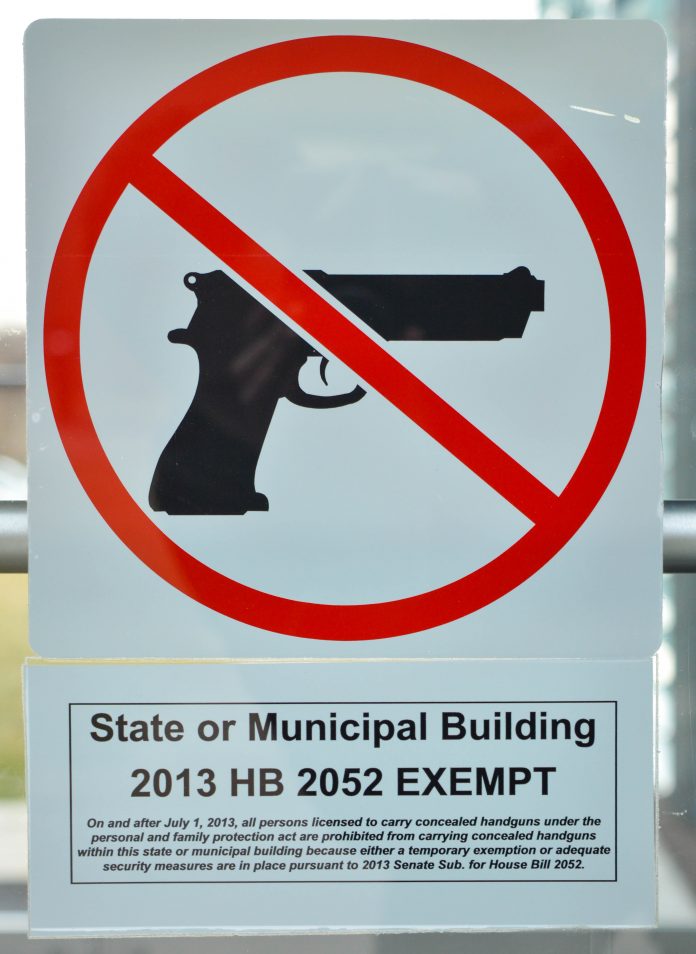
Nell Gross
Editor-in-chief
ngross1@jccc.edu
After the state of Kansas passed a law in 2013 allowing concealed firearms in public areas, a four year exemption was offered to mental health centers, certain hospitals and college campuses. At the time the college elected to adopt the exemption, therefore weapons have not been allowed on campus since. After this exemption expires on July 1, students or faculty that are 21 or older will be able to carry a concealed weapon on campus.
Recently there have been attempts made in both houses of the state legislature to extend the exemption permanently. However, none of these attempts have made it past the committee stage of the legislative process.
In late January, the Board of Trustees released a memo that was sent to both the state and house committees. The memo states that because of its belief in local control, the Board believes that the decision to allow weapons on campus should be made by those elected by the Johnson County area to serve the college.
A survey was conducted by the Docking Institute of Fort Hays State University in 2016 to determine the majority opinion of the college’s students, staff and faculty. The results showed that 81 percent of staff and faculty and 65 percent of students wished to extend the current exemption. 16 percent of faculty and staff and 35 percent of students indicated a desire to have guns on campus.
The role of the Faculty Association is to represent the views of the college’s full time faculty. President of the Faculty Association Dennis Arjo said that currently the association is working on conveying their views on concealed carry to the administration and the legislature.
“We generally don’t see that there is a danger that would be addressed by this, we don’t think it’s going to help solve anything,” Arjo said. “We’re worried that if you increase the number of guns, you increase the likelihood of accidental shootings. There’s some concern that if some students are armed that it might suppress discussion of controversial topics.”
Chief of Police Gregory Russell believes that one issue that could possibly arise in the case of an emergency is improper use of a firearm.
“There is that belief that having a gun would make them feel safer … For a citizen, without the proper training, without familiarization, with a combative situation like that, are they going to rush to the trouble to attempt to eliminate it.”
Since the exemption was passed, the college has made an effort to determine the best ways to keep the campus safe. The college currently has a fully armed police department that includes 23 sworn officers and 14 trained civilians, and provides A.L.I.C.E. (Alert, Lockdown, Inform, Counter, Evacuate) training to students and staff to ensure their preparedness in the event of a violent incident. As the expiration date of the exemption approaches, the college continues to encourage all on campus to be vigilant and to be vocal if they spot suspicious activity.
“The best thing we can do is to be aware of the issue, refresh ourselves on what to do in the event of a situation, and be alert,” said Chairman of the Board of Trustees Greg Musil. “Be willing to say ‘I saw something,’ ‘I heard something’ or ‘somebody posted something on social media.’”





















